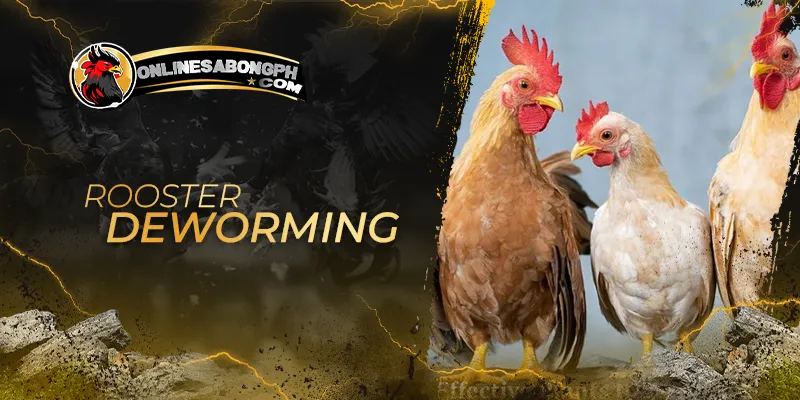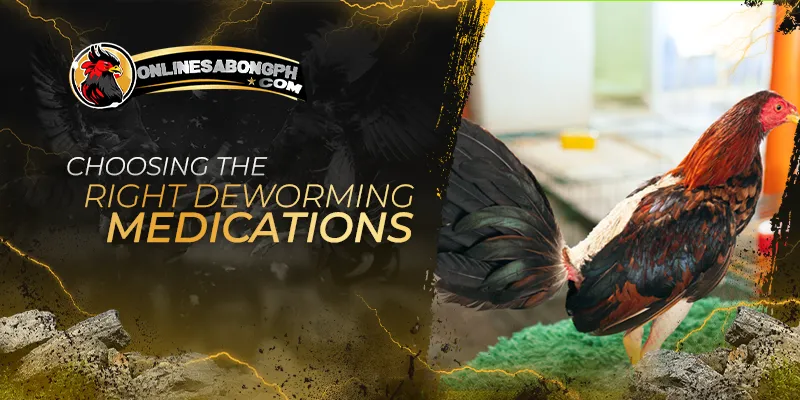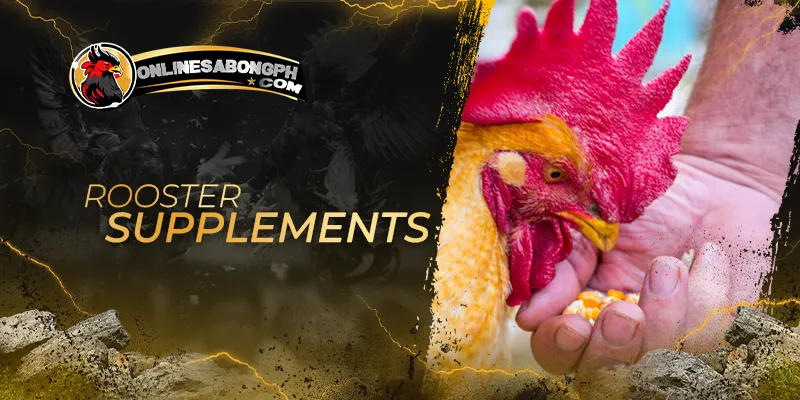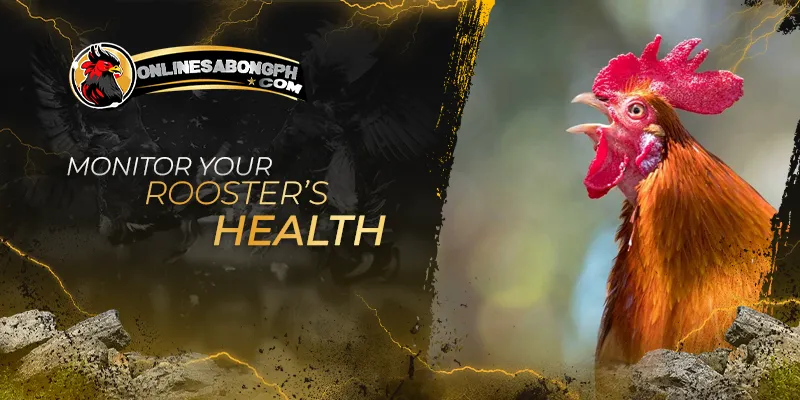Unlock the full potential of your roosters! Healthy, strong roosters are the heart of a thriving flock. This guide is your key to keeping them in top form. By understanding the importance of deworming and strategic supplementation, you’re not just caring for your roosters, you’re empowering them to reach their full potential. Let’s dive into these essential practices and help your roosters shine!
The Essentials of Rooster Deworming
Rooster Deworming
Keeping your roosters healthy and strong requires proactive parasite control. Deworming is a critical step in maintaining your rooster’s well-being, eliminating those pesky internal parasites that can rob them of nutrients and weaken their immune systems. Let’s explore why deworming matters, how to do it effectively, and the importance of veterinary guidance in the process.
Why Deworming Matters
Parasite Impact – Internal parasites like roundworms, tapeworms, and others steal nutrients from your roosters, leading to:
- Weight loss
- Lethargy
- Poor feather condition
- Weakened immune system
- In severe cases, even death
Contagious – Parasites spread easily within a flock. Deworming not only helps infected roosters but protects the entire group.
How to Deworm:
- Medication: Deworming medications are available in various forms (pills, liquids, powders) and target different parasites. Your veterinarian will recommend the best option for your flock’s needs.
- Frequency: Regular deworming schedules are crucial. Consult your veterinarian to determine the ideal frequency for your location and flock.
- Natural Alternatives: While not always as effective as medication, some natural options like garlic, diatomaceous earth, or apple cider vinegar are thought to have deworming properties. However, it’s best to consult with your veterinarian before relying solely on these.
Important Considerations:
Observe Withdrawal Times: Deworming medications often have a “withdrawal period,” meaning you must wait before consuming eggs or meat from treated roosters. Check the medication label carefully.
Preventative Measures: Good sanitation practices help reduce parasite exposure:
- Regularly clean the coop and run.
- Rotate grazing areas
- Limit contact with wild roosters.
Veterinary Guidance: Consulting your veterinarian is essential for choosing the right deworming medication dosage frequency and ensuring the overall health of your roosters.
Selecting the Right Deworming Medication
Right Deworming Medications
Choosing the right deworming medication for your roosters is essential for effective parasite control. Here’s a breakdown of the key factors to consider:
- Types of Parasites: Not all dewormers cover the full spectrum of parasites. Identifying the specific parasites affecting your flock is crucial. Your veterinarian can assist with this through sample analysis.
- Broad-Spectrum vs. Targeted: Broad-spectrum dewormers tackle multiple types of parasites, while targeted medications focus on specific species. Knowing the issue allows for optimal treatment.
- Poultry-Approved Medications: Ensure the dewormer is specifically labeled for use in poultry. Using medications intended for other animals can be dangerous.
- Dosage: Accurate dosing is critical. Follow the medication instructions and consult your veterinarian for the appropriate dosage based on your rooster’s size and breed.
- Withdrawal Period: Most dewormers have a withdrawal period during which you cannot consume eggs or meat from treated roosters. Check the label instructions.
Resources for Finding the Right Dewormer
- Veterinarian: Your veterinarian is your best resource for diagnosing parasites, recommending the right dewormer, and safe dosage guidelines.
- PoultryDVM: This website (https://www.poultrydvm.com/) offers a helpful selection tool for finding dewormers based on the type of parasite, target species, and more.
- Reputable Poultry Supply Sources: Knowledgeable poultry supply stores can assist with selecting suitable dewormers.
Remember:
Deworming is only one part of a comprehensive parasite control plan. Good sanitation and biosecurity practices help prevent re-infection.
Deworming Schedule and Best Practices
A regular deworming schedule is recommended, usually twice a year, but this can vary depending on the local climate and the specific conditions of your farm. Key practices include:
Recommended Frequency
While twice a year is a general guideline, the ideal deworming schedule for your roosters depends on factors like:
- Climate: Warmer, wetter climates often harbor more parasites.
- Pasture Management: Frequent pasture rotation reduces exposure.
- Veterinarian’s Advice: They can tailor a schedule to your flock’s needs.
Best Practices for Maximum Effectiveness
- Deworm the Entire Flock: Treating all roosterssimultaneously prevents re-infestation.
- Quarantine: Deworm new arrivals before adding them to the flock.
- Pasture Rotation: Move roosters to clean grazing areas to break the parasite life cycle.
- Cleanliness is Key: Regularly clean and disinfect coops and runs to reduce parasite buildup.
Supplementation for Optimal Rooster Health
Rooster Supplements
A well-balanced diet is the foundation of health, but targeted supplementation can provide an extra boost:
- Vitamins and Minerals: Boost immune function and support overall health. Supplements containing vitamins A, D, E, and B-complex should be considered.
- Electrolytes: Support hydration and recovery, especially during stress or hot weather.
- Probiotics: Promote healthy gut bacteria, which helps with nutrient absorption and immune function.
- Specialized Supplements: Supplements supporting reproductive function may be beneficial for breeding roosters.
- Calcium and Phosphorus: Important for bone health, especially in active roosters.
Important Note:
Always consult with your veterinarian or a poultry nutritionist before starting a supplementation program. They can recommend the right type and dosage for your rooster’s individual needs.
Natural Supplements
While traditional deworming medications are highly effective, natural supplements can offer complementary support for your rooster’s well-being. Here are some popular options and their purported benefits:
- Garlic: Thought to have antibacterial, antifungal, and mild anti-parasitic properties. Also known to boost the immune system.
- Apple Cider Vinegar (ACV) Helps create a slightly acidic gut environment, which can be less hospitable to parasites. It may also improve digestion and feather quality.
- Diatomaceous Earth (DE): This food-grade powder has microscopic sharp edges believed to mechanically disrupt parasites. Can be dusted on roosters or added to feed.
Advantages of Natural Supplements
- Holistic Support: They work alongside traditional dewormers and promote overall health and immune function.
- Fewer Side Effects: Generally well-tolerated, they are a good option for sensitive roosters.
- Accessibility: Often readily available and easy to administer.
Integrating Supplements
- Dosage is Key – Follow recommended amounts carefully. Overdosing can be ineffective or even harmful.
- Don’t Rely Solely on Natural Options – While beneficial, they shouldn’t replace traditional deworming or veterinary care, especially in cases of heavy infestation.
- Veterinary Consultation – Always consult your vet before starting any new supplement, especially if your rooster has underlying health conditions.
Tips for Administration
- Mix with Feed: Finely chopped garlic or DE can be easily incorporated into your rooster’s regular feed.
- Add to Water: Dilute ACV as directed and add it to your rooster’s drinking water. Monitor its acceptance and provide fresh, plain water as well.
Important Note:
Natural supplements are a valuable addition to your rooster care routine but shouldn’t be seen as a cure-all. Maintaining hygiene, regular deworming under veterinary guidance, and a balanced diet remain the cornerstones of parasite prevention.
Common Mistakes Deworming and Supplementation
Even with the best intentions, mistakes can happen. Here are a few common pitfalls to avoid:
- Overdosing or Underdosing: Always adhere to the recommended dosages of dewormers and supplements. Overdosing can be harmful, while underdosing may not effectively address the issue.
- Irregular Deworming Schedule: Failing to maintain a regular deworming schedule can lead to recurrent infestations.
- Neglecting Cleanliness: Clean coops and environments are essential in preventing the spread of parasites.
Monitoring Your Rooster’s Health
Roosters Health
After deworming and starting a supplementation program, it’s important to pay close attention to your roosters to assess the effectiveness of your efforts. Here’s what to watch for:
- Weight Gain: If parasites were stealing nutrients, you should see a healthy increase in weight once they’re eliminated.
- Improved Feather Quality: Shiny, full feathers are a sign of good health and nutrition. Watch for reduced feather loss and better overall condition.
- Increased Activity Levels: When feeling their best, roosters are more energetic and alert.
- Droppings: While not always foolproof, healthier droppings (more solid, less watery) can sometimes indicate parasite reduction.
When to Seek Veterinary Advice
- Lack of Improvement: If you don’t see the expected changes after a reasonable period, or if your rooster’s health seems to worsen, consult your veterinarian. There may be underlying issues or different parasites requiring specific treatment.
- New Symptoms: Any new concerns like lethargy, respiratory problems, or unusual behavior warrant a veterinary check-up.
- Preventative Care: Regular check-ups with your veterinarian, even when roosters seem healthy, help with early detection of potential problems.
The Importance of Observation
Regular, hands-on observation is key. Knowing your rooster’s normal behavior lets you spot any subtle changes. A proactive approach to monitoring health after deworming and supplementation ensures you can quickly address any concerns and keep your roosters thriving.
Conclusion
Maintaining the health of your roosters through regular deworming and proper supplementation is key to their longevity and productivity. This guide aims to provide you with the knowledge and tools to manage these aspects effectively. Remember, a healthy rooster is a happy rooster, and with the right care, your flock can thrive.
Visit us at onlinesabongphil.com for more updates and tips!




